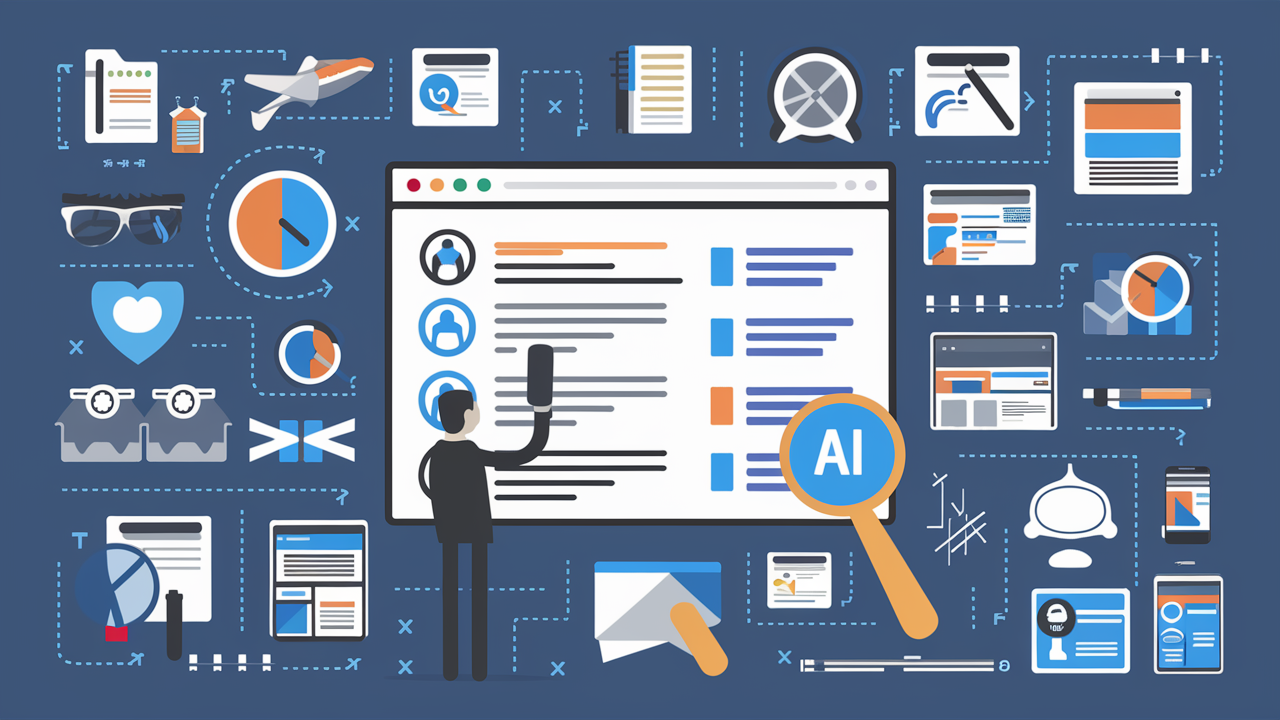TL;DR:
- AI models like OpenAI’s ChatGPT and Google’s Gemini are redefining search technologies.
- AI-generated search results offer precision and personalization, enhancing user experience.
- SEO practices are evolving to adapt to AI-driven algorithms.
- Businesses must focus on quality content and structured data for AI-readability.
- AI will continue to reshape how we search, making adaptability crucial for success.
What Are AI-Generated Search Results?
AI-generated search results refer to the output of search engines that use artificial intelligence to better understand and respond to user queries. Unlike traditional search results that rely on keyword matching, AI systems integrate machine learning, natural language processing (NLP), and large language models (LLMs) to interpret intent and provide more contextually relevant answers.
For example, when you type, “What are the best practices for SEO in an AI-driven world?”, an AI-enhanced engine may generate a concise answer directly within the search results. It might surface lists or even content summaries instead of simply linking to websites.
Why Are AI-Driven Search Results Important?
With the advent of AI models like Gemini by Google and OpenAI’s ChatGPT, search engines are undergoing significant transformations. These models introduce several advantages:
- Improved Query Understanding: AI models can interpret long-tail and conversational queries more accurately.
- Personalized Recommendations: Search results are often tailored to user preferences and browsing history.
- Faster Problem-Solving: Users receive answers directly in search results without clicking multiple links.
- Contextual Accuracy: AI prioritizes context, which improves the relevance of suggestions.
Consequently, these advancements enhance user experience and push content creators to adapt their strategies for visibility.
How AI Is Changing the SEO Landscape
1. The Rise of Conversational Queries
AI-driven search engines are designed to interpret natural language. Traditional one- or two-word keywords are becoming less dominant, while full-sentence queries, like “How can I improve website rankings through AI?”, are more common.
What businesses can do: Optimize content for conversational language. Use FAQs, question-based headings, and structured answers that address user intent directly.
2. Shift Toward Content Depth and Quality
Superficial content won’t satisfy AI-driven algorithms. These systems reward deep, high-quality, and engaging material that meets search intent.
Actionable Tip: Focus on writing in-depth guides, creating multimedia resources, and offering unique insights that AI systems can parse and prioritize.
3. Emphasis on Structured Data
Search engines rely on structured data to interpret website content quickly. Rich snippets, schema markup, and metadata enhance visibility in AI-generated search results.
How to Implement: Use structured data formats like JSON-LD for marking up headings, product information, reviews, and FAQ content.
4. Integration of Dynamic Visuals
AI search engines also prioritize multimedia formats like videos, infographics, and interactive graphs. Visuals help clarify complex topics, offering users enhanced understanding.
Example: Instead of lengthy text, use a quick infographic summarizing “SEO survival tactics in the AI era.” Not only does this engage users, but it also increases the likelihood of AI prioritizing your content.
Practical Strategies for Adapting to AI-Generated Search Results
1. Understand the User Journey
AI models analyze user data to better predict preferences. Reflect this adaptability by ensuring your content caters to different stages of the customer journey—awareness, consideration, and decision.
For example: If your target audience is beginners, craft introductory guides that address their direct questions.
2. Leverage Natural Language Processing
NLP models can now detect nuances in phrasing. Aligning your tone and language with natural human conversations ensures higher AI compatibility.
Actionable Tip: Use tools like Google’s BERT or Hemingway App to assess and simplify your text for both AI comprehension and user readability.
3. Localize Your Content
For businesses targeting local markets, AI places significant weight on hyper-localized content. Optimizing for location-specific queries (“Find the best coffee shop in Chicago”) increases visibility.
How to Adjust: Include local keywords, Google My Business profiles, and geo-specific metadata in your content strategy.
Anticipated Challenges of AI-Generated Search Results
While promising, AI-driven search results come with challenges that require thoughtful navigation:
- Loss of Website Traffic: Direct answers provided in search results may reduce the need for users to visit websites.
- Content Misinterpretation: AI’s reliance on context may occasionally lead to misrepresentations.
- Increased Competition: Higher-quality content standards make it difficult for subpar resources to rank.
Solutions to Address Challenges:
- Adopt a multi-channel content strategy to capture users on social media, email, and other platforms.
- Combine concise answers with compelling CTAs to encourage users to visit your site for more insights.
- Regularly audit content for accuracy and context to ensure AI correctly interprets your material.
Looking to the Future: AI Search Innovations
As we progress, AI-generated search results are expected to expand in capability:
- Voice Search Optimization: With voice assistant use rising, optimizing for spoken queries is becoming critical.
- Predictive Search Suggestions: AI may soon proactively suggest search topics based on user behavior trends.
- Deeper Personalization: Future AI models will likely personalize search results even more.
Conclusion: Building adaptability now will prepare businesses for these inevitable shifts.
Final Thoughts: Embrace the AI Era
Understanding AI-generated search results is key to thriving in this new era. AI is reshaping search engines, SEO, and how users consume content. Staying updated on technological advancements and adapting proactively ensures your strategies remain effective. Remember, innovation isn’t just about staying relevant—it’s about staying ahead.
What’s your next step? Engage in continuous learning, analyze your website’s AI compatibility, and embrace tools that refine your content for tomorrow’s search technologies.

